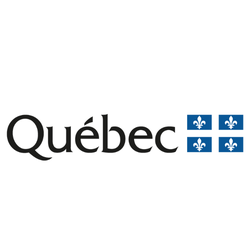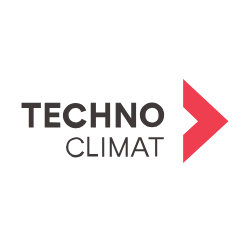
Closed
MAPAQ — Food Processing Program — Component 3
Last Update: November 24, 2025
QC, Canada
Funding nutritious food development projects in Québec businesses
Grant and Funding
At a glance
Funding available
Financing goals
Marketing a product
Eligible Funding
- Maximum amount : 150,000 $
- Minimum amount : 7,500 $
- Up to 50% of project cost
Timeline
- Open Date : May 7, 2025
- Closing date : September 30, 2025
Eligible candidates
Eligible Industries
- Manufacturing
Location
- Quebec
Legal structures
- For-profit business
Annual revenue
- $ 200,000,000 maximum revenue
Organisation size
- All organization sizes
Audience
- Startups
Overview
The Alimentation Santé 2023-2025 program's Volet 3 supports projects that aim to develop or enhance nutritious food products and can fund up to 70% of eligible expenses, with a maximum of $300,000 per applicant per financial year. Eligible activities include coordination of industry stakeholders, conducting training and information sessions, valorizing successes in creating nutritious food, and undertaking studies or clinical trials to verify the nutritional benefits of food ingredients.
Activities funded
- Implementation or updating of food quality and safety management systems to meet government or international standards.
- Implementation of preventive control plans for food safety.
- Obtaining or updating certifications such as HACCP or recognized certifications under the Global Food Safety Initiative (GFSI).
- Improvements required to comply with government market access requirements differing from Canadian standards.
- Implementation or updating of organic certification systems.
Examples of admissible projects:
$ 40,000
Implementation of a Hazard Analysis Critical Control Point (HACCP) system for a dairy processing facility
$ 18,750
Implementing an organic certification system for a local organic farm business
$ 30,000
Implementing a preventive control plan for a seafood processing plant
$ 37,500
Updating food safety system in a meat processing plant to comply with new government regulations
$ 22,500
Updating a food safety management system in a bakery to meet new GFSI standards
$ 45,000
Implementation of GFSI-recognized quality system in a beverage production facility
Eligibility
- The company must be registered in the Quebec Enterprise Register (Registre des entreprises du Québec).
- The company must have operated an establishment in Quebec for at least 12 consecutive months.
- The most recent annual financial statements (audited, reviewed, or compiled by a Chartered Professional Accountant) must show total revenues not exceeding $200 million.
- The application must be for a project implemented at an establishment operated by the company in Quebec, where either food processing activities or at least two other activities recognized by MAPAQ are carried out and food is offered on the wholesale market or for online sale, or a central kitchen is operated.
- The project must involve eligible activities related to the implementation or updating of food quality and safety management systems as recognized by MAPAQ.
Who is eligible?
- Food processing companies registered in the Quebec Enterprise Register
- Abattoirs (slaughterhouses) with appropriate permits or licenses
- Cheese-making facilities with a dairy plant operating permit
- Central kitchens operated by eligible companies
- Non-profit organizations linked to the cheese or abattoir sectors (for collective projects)
Who is not eligible
- Establishments that exclusively process food for livestock.
- Establishments processing aquatic products located in maritime regions, whose main activity is the preparation and canning of aquatic products (NAICS code 3117).
- Government ministries, budgetary or non-budgetary public organizations, Crown corporations, government-controlled enterprises, and municipal entities.
- Financial cooperatives and banking institutions.
- Companies or subcontractors listed in the Register of Enterprises Ineligible for Public Contracts (RENA).
Eligible expenses
- Professional fees and travel expenses for external experts not affiliated with the applicant.
- Salaries for internal experts directly responsible for project implementation, limited to the time spent on the project (up to 30% of the total financial assistance).
- Employer contributions and social benefits for personnel directly involved in the project (up to a defined percentage of salaries).
- Design of plans and specifications for the project, if not previously supported under another component.
- Rental costs for equipment and specialized facilities needed for the project duration.
- Costs of materials required for project activities.
- Purchase, modification, delivery, and installation of new or used equipment (with a minimum three-month warranty).
- Building modifications or expansions needed for the project, performed by a licensed contractor in Quebec.
- Acquisition and rental of specialized software and necessary equipment for the project.
- Subscription fees for specialized software (up to one year).
- Staff training expenses (course registration, educational materials, training platforms, and compliant travel costs).
- Purchase of laboratory equipment and devices for physicochemical and microbiological analyses.
- Fees for analyses conducted by an external laboratory without business ties to the applicant.
- Certification fees from a recognized external organization.
Eligible geographic areas
- Quebec
Selection criteria
- Relevance of the project to the specific objectives of the funding component.
- Feasibility, realism, and viability of the proposed project.
- Presence of the technical, organizational, and administrative capacities necessary to carry out the project.
- Financial viability and performance of the applicant.
- Consistency between the project planning documents and the information provided in the application.
How to apply
1
Check eligibility requirements
- Review eligibility criteria for your business and project
- Ensure your company meets the financial and operational requirements
- Confirm that your project fits within the scope of the eligible activities
2
Prepare required documents
- Gather all mandatory documents (completed and signed application form, financing plan, recent CPA-audited financial statements, project planning form, CVs of internal experts, potential external expert’s service offer, equipment quotes, relevant justifications)
- Ensure all documents are in French
3
Submit your application
- Email the complete application and supporting documents in a single message to transfo@mapaq.gouv.qc.ca
- Confirm receipt of submission
4
Receive application acknowledgment
- Monitor for acknowledgment from MAPAQ confirming receipt of your application
- Provide any additional information if requested by the Ministry
5
Application evaluation by MAPAQ
- Wait for MAPAQ to evaluate the eligibility and merits of your application and project
- Be available for additional clarifications if required during evaluation
6
Receive decision on application
- Receive a decision notice from MAPAQ regarding acceptance or refusal of your application
- If accepted, review and sign the financial assistance agreement
- If refused, read the explanation provided
7
Request a decision review if needed
- If unsatisfied with the decision, submit a request for review within 20 business days using the appropriate form found on the program web page
- Note that changes or new documents not included in the initial application will not be considered
Additional information
- Applications are reviewed on a rolling basis until September 30, 2025, or until funds are depleted, whichever comes first.
- Only applications submitted with all required documents will be processed; the official eligibility date for eligible expenses is the date on which a complete application is received.
- Applicants may request a review of the evaluation decision within 20 business days from the date of communication.
- Receiving pre-application guidance from the Ministry does not guarantee application acceptance or funding approval.
Contacts
Emmanuelle.DeMeyer@mapaq.gouv.qc.ca
QC, Canada
Apply to this program
Frequently Asked Questions about the MAPAQ — Food Processing Program — Component 3 Program
Here are answers to the most common questions about the MAPAQ — Food Processing Program — Component 3. This section explains what the program is, how much funding is available, eligibility requirements, application deadlines, and other important details to help you determine if this grant is right for your business.
What is the MAPAQ — Food Processing Program — Component 3?
How much funding can be received?
What is the deadline to apply?
Who is eligible for the MAPAQ — Food Processing Program — Component 3 program?
What expenses are eligible under MAPAQ — Food Processing Program — Component 3?
Who can I contact for more information about the MAPAQ — Food Processing Program — Component 3?
Where is the MAPAQ — Food Processing Program — Component 3 available?
Apply to this program
More programs like this

Grant and FundingClosed
MAPAQ — Food Processing Program — Component 2
Ministry of Agriculture, Fisheries and Food (MAPAQ)Enhancing productivity through food industry automation assistance

Grant and FundingOpen
Support for biofood exports - individual projects
Ministry of Agriculture, Fisheries and Food (MAPAQ)SEB supports Quebec agri-food market expansion outside Quebec

Grant and FundingOpen
ÉcoPerformance — Recommissioning of building mechanical systems
Gouvernement du QuébecFunding to optimize the operation of building mechanical systems

Grant and FundingSuspended
Individual Market Access Support (SIAM)
Aliments du QuébecMarket Access Support for Quebec Food Processors

Grant and FundingClosed
GHG Challenge Program - Industry
Environnement Qu�ébec (MELCC)Supports major industrial projects reducing greenhouse gas emissions

Grant and FundingOpen
Economic development program to help revitalize territories (DEPART)
Investissement Québec (IQ)DÉPART supports economic diversification and growth in targeted areas

Grant and FundingOpen
Innovative Projects Program
Hydro-QuébecSupports innovative, energy-efficient projects for multi-building developments

Grant and FundingOpen
Technoclimat
Environnement Québec (MELCC)Financial assistance for the demonstration of new technologies in Quebec

Grant and FundingClosed
Support program for positioning Quebec alcohol in the SAQ network
Ministère de l'économie, de l'innovation et de l'énergie du Québec (MEIE)Supports Quebec alcoholic beverage producers in the SAQ network

Partnering and CollaborationGrant and FundingClosed
Biofood Innovation Program Component 2 – Applied research, experimental development and technological adaptation
Ministry of Agriculture, Fisheries and Food (MAPAQ)Québec biofood sector innovation and knowledge transfer grant
Sign up to our platform to access the MAPAQ — Food Processing Program — Component 3 information sheet for free
Get access to 4,000+ programs, practical guides, personalized alerts, and an AI assistant to support your grant applications.